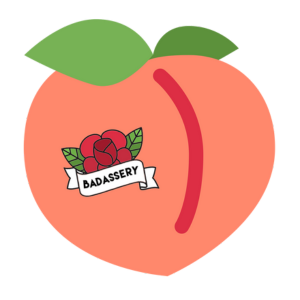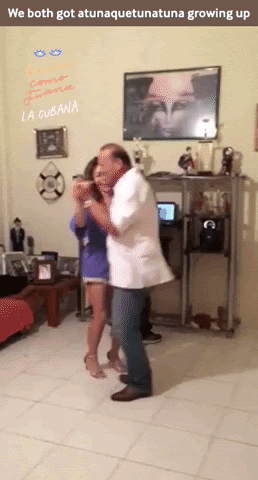Turns Out I’m a White Latina
By Badassery member Melissa Narvaez Arteaga, Field Marketing Manager at Salesforce, founder of Venezolanas in Tech, dancer, traveller, photographer, and a learner of new languages. In honor of Hispanic Heritage Month.
The mid-life self discovery process started when I immigrated to the United States from Venezuela and I had to complete my first form. You know, those that ask demographics. It all went smoothly at the beginning, choosing gender, woman, check! Choosing ethnicity, Latina, ok I had already learned this one. And then came race. As I read through all the choices, I found myself confused. I didn’t find an option for me. That first time I just put “Other” and went on.
After completing more and more forms like these, I started to think there was a problem with these forms, “They’re missing options!” I shouted out of frustration one day. So what was I looking for? Well, at least multi-racial, or bi-racial, but what I actually identify as is mestiza, which is generally used throughout Latin America to describe people of mixed ancestry with a white European and an indigenous background. Similarly, the term “mulatta/o” – mulata/o in Spanish – commonly refers to a mixed-race ancestry that includes white European and black African roots.
Turns out I’m a white Latina.
Yes, I’ve seen myself in the mirror many times, so I know what I look like. What I didn’t know was that even being of multi-racial descent, from a country of indigenous peoples, that was colonized by Europeans who brought African slaves, resulting in a blend of races that has made most Latin American countries so diverse, I am still considered white because I happen to have inherited the lighter color genes from my mom’s side of the family.
Latina is also a term I did not know much about before moving to the U.S., and all these years I thought I was a mestiza, Venezuelan and also half Nicaraguan. So what does Latino/Latina mean exactly?
Latinos is a word that was used by a known media company to segment the Latin American immigrants and descendants of immigrants in the U.S years ago. So, it’s an American term. But if you think about it, that is a very broad and diverse group of people. For starters, what is considered Latin America includes countries that don’t even speak Spanish (hello Brazil and many Caribbean islands), it’s a community that is as diverse as it gets. We have Asian Latinxs, Afro Latinxs, Indigenous Latinxs, Jewish Latinxs and so on. We are similar in many ways, but also very different.
Did you know there are 33 (yes, you read that correctly) 33 countries in Latin America? This is including the Caribbean islands. Just to give you an example, there are 17 different ways of saying popcorn in Latin America, and they’re all in Spanish. How diverse is that?!
I’m going to tell you a little about my country and a few things that I think make Venezuelan culture and people so special:
Music
Like many Latin American countries, music is part of life in Venezuela. We have joropo, calypso, merengue, salsa, boleros, and many more. I personally LOVE our afrovenezuelan drums. This is the music you will hear during any type of celebration, and it’s something any Venezuelan will move to no matter where they are in the world. This music is typical from Barlovento, a region where most of the slaves were brought from Africa. Tambores are so ingrained in our culture that you will always see someone flipping a bucket to play it as a drum while singing happy birthday.
Birthdays
Which brings me to the next fun fact: our birthday song. I think Venezuela has the longest version of “Happy Birthday” than any country in the world (I’m exaggerating, but it feels like it’s true!). The song is 3:14 minutes long. It’s like an anthem to Venezuelans, especially if they have migrated, it becomes one of those things that makes us feel at home...and one of those things that our non-Venezuelan friends politely smile about until the song finally ends.
Dancing👏🏽all👏🏽the👏🏽time👏🏽
In Venezuela we have a saying when somebody doesn’t dance to the tune “they didn’t get atunaquetunatuna when they were little”. It basically means that as a baby, they weren’t sung this tune that goes “atunaquetunatuna” while they’re moved to the rhythm of the song. What this tells you is that we are all about dancing. I grew up in a family that at every gathering (birthday or not), we’d always put salsa or merengue and dance amongst each other. That’s how you learn to dance in Venezuela! You grow up dancing with your parents, grandparents, uncles, aunts and it becomes a tradition. That’s one of the things I miss the most about home, family gatherings and dancing nights.
To be honest, I’m still discovering, unlearning and learning the dynamics of race and ethnicity, and it’s been a scary and sad process as I educate myself on this topic. What I do know, though, is that I’m proud to call myself a Latina. I love having a special bond with all my sisters and brothers in Latin America. My father was from Nicaragua, my mother was from Venezuela, I lived in Argentina, I dance samba, and love chipa and ceviche. So believe me when I say we’re like a family. But, we still want our uniqueness to be recognized because it’s who we are. It’s our identity.
Check out more about Melissa on her Badassery page and follow her on LinkedIn.


